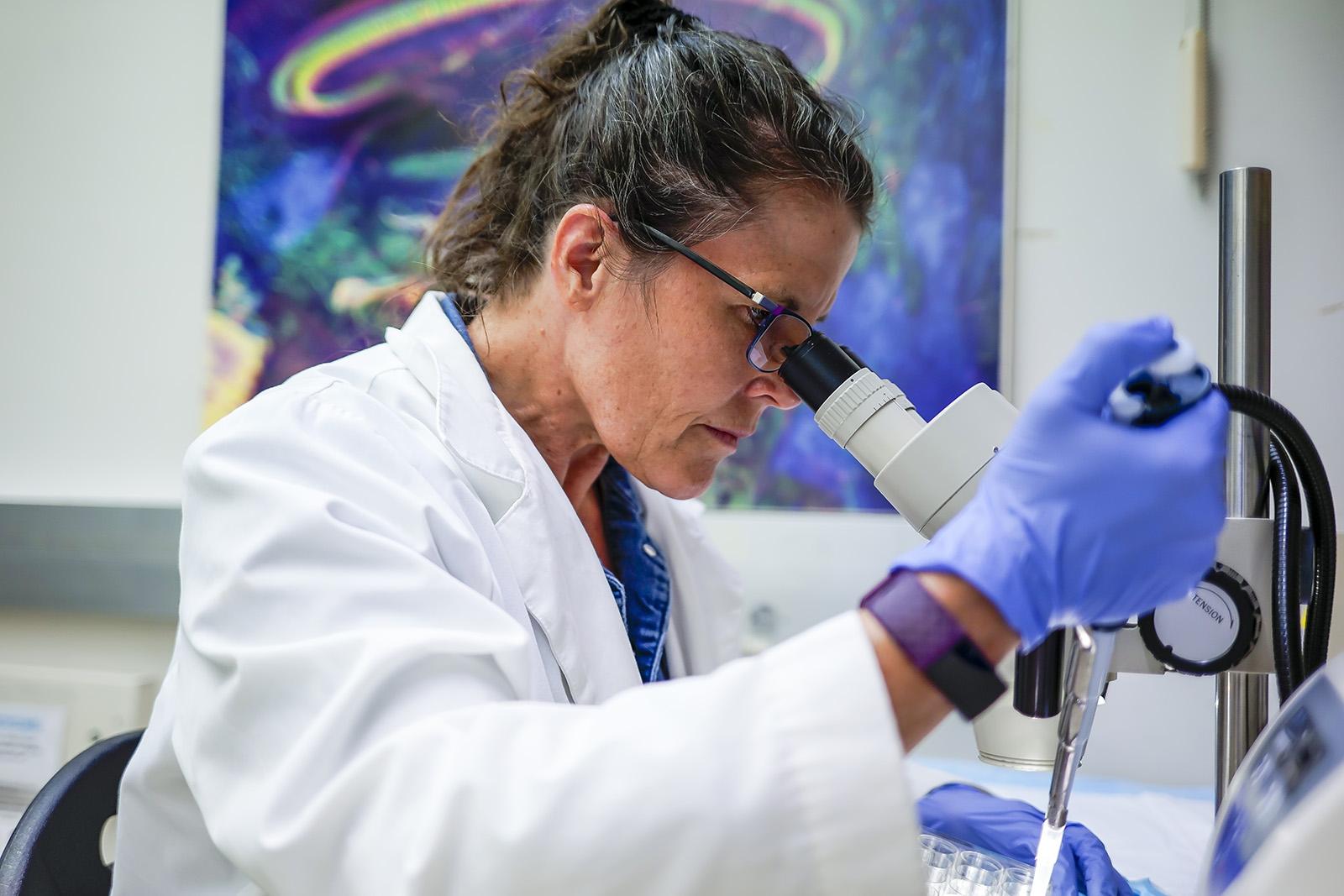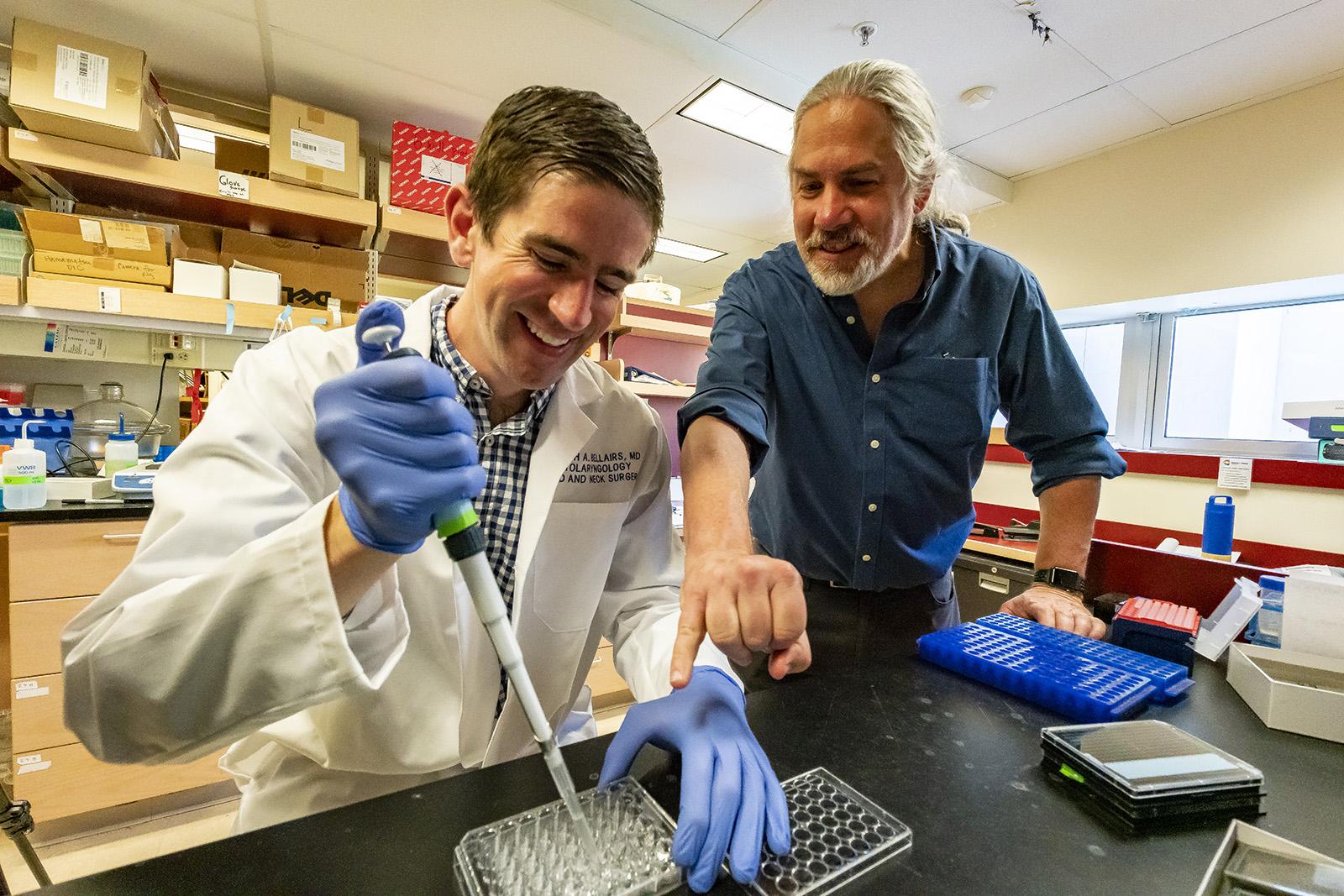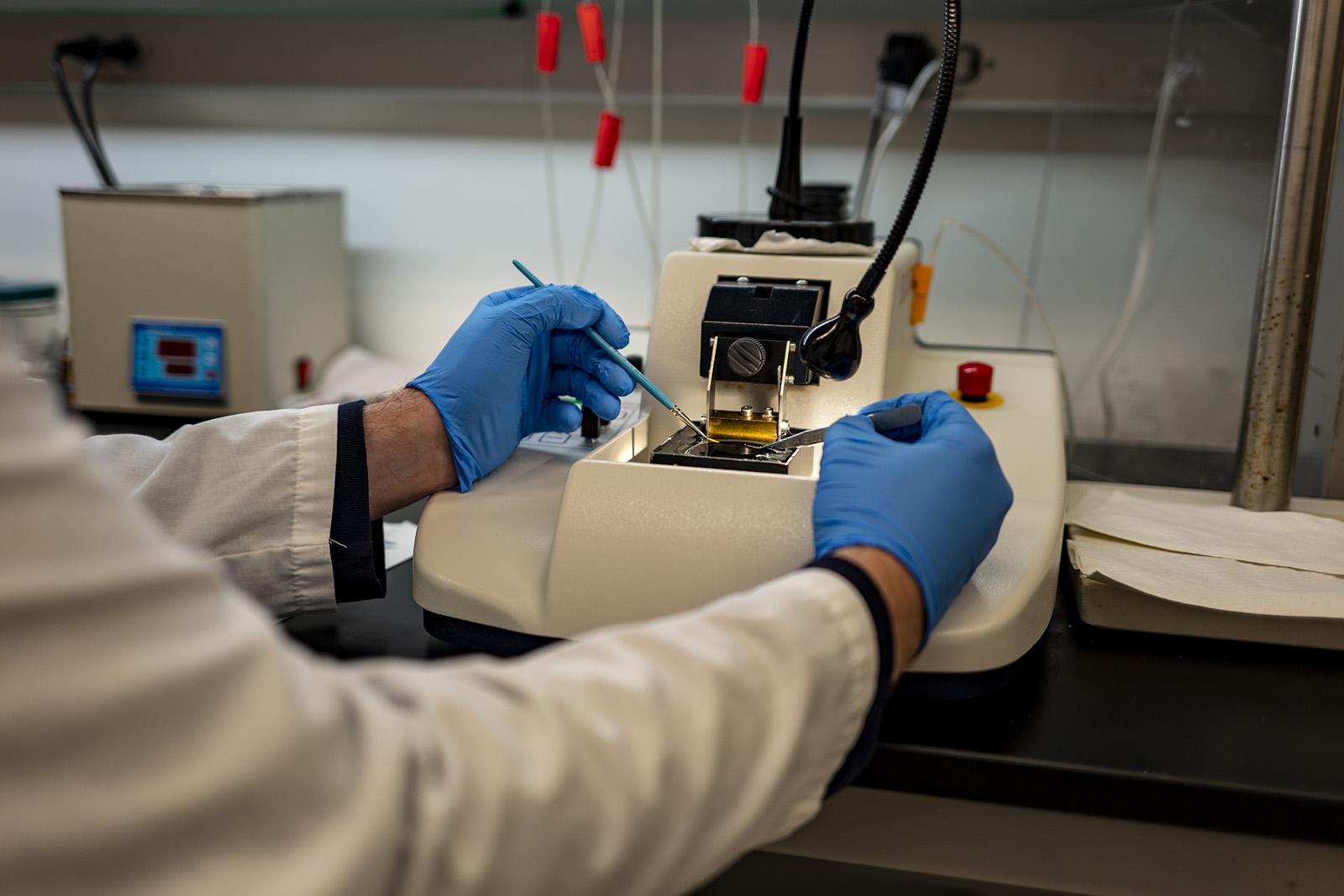Research
Advancing Care Through Science
The faculty, fellows and residents of the Department of Otolaryngology-Head and Neck Surgery are actively engaged in research to better understand diseases affecting the head and neck in a number of disciplines in both adults and children. Studies occur across the translational research spectrum (from bench to bedside) and include molecular and genetic profiles of oral cavity cancer; fundamental knowledge about how our senses of hearing and balance develop, function and degenerate over time; computer-aided skull base surgery; sleep surgery; regenerative techniques for patients with voice, airway, and swallowing disorders; and vascular and lymphatic malformations.
Novel discoveries at the molecular level are translated into new treatments that ultimately inform clinical and population studies. Future studies are designed to better understand disease and to determine how to apply treatments, techniques and technology to improve medical and surgical outcomes and quality of life.
In depth descriptions of current research are included in the linked faculty biographies within our sub-specialty designations.
Visit the links below to learn more: Research Areas to learn what our faculty investigate; Research Training to learn about our training programs for residents, students, and visiting providers; Research Resources for guidance on research development, grant funding, and facilities; and the Virginia Merrill Bloedell Hearing Research Center for information about our affiliate research center.



